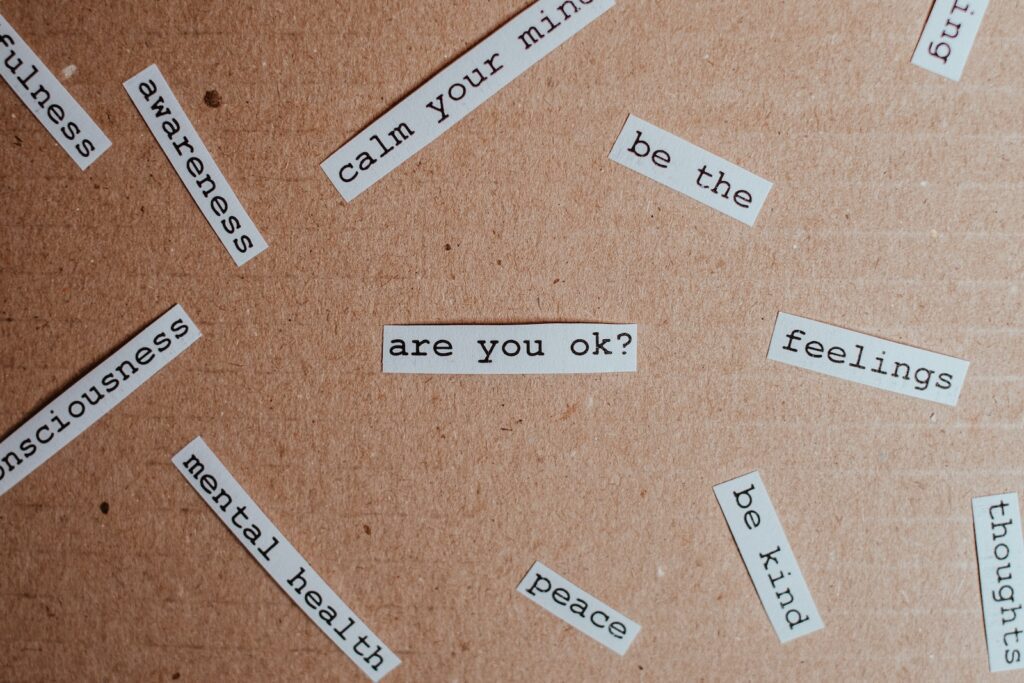I. Why Mental Health Matters
Imagine every fourth person you meet silently battling a mental health problem. It’s an alarming reality, with one in four globally expected to experience a mental health issue at some point. As World Mental Health Day approaches on October 10th, let’s spotlight this invisible struggle, emphasizing its importance and rallying towards a more compassionate society.
II. The Global Impact of Mental Health Disorders

According to the World Health Organization, approximately 970 million people have a mental health disorder. Think about that number for a moment. It’s more than the entire population of Africa. These aren’t just statistics; they’re individuals with lives, dreams, and hopes significantly impacted by conditions such as depression, anxiety, bipolar disorder, and schizophrenia.
Consider Sarah, a teenager from London. Excelling at school and being an active participant in community services, Sarah’s struggle with depression was invisible to those around her until she finally decided to seek help. Then there’s Raj, a successful software engineer from Mumbai. Despite his external success, Raj wrestles with debilitating anxiety daily, an invisible battle that goes unnoticed by colleagues and friends.
III. Understanding Mental Health: Unpacking the Complexities
“mental health” is more than a buzzword; it’s a critical aspect of our well-being. The World Health Organization describes mental health as a state of well-being in which individuals can cope with the normal stresses of life, work productively, and contribute to their communities. Mental health disorders disrupt this equilibrium, influencing our emotions, thoughts, and behaviors. These conditions manifest in many forms, from commonly known ones like depression and anxiety to less prevalent but equally impactful ones like bipolar disorder and schizophrenia.
IV. The Stigma Around Mental Health: Breaking the Silence
Unfortunately, mental health disorders are often shrouded in stigma and misunderstanding, creating a wall of silence around them. A study by the National Institute of Mental Health revealed that about two-thirds of people with a known mental disorder never seek professional help, mainly due to fear of judgment or discrimination. However, there are glimmers of hope in this cloudy landscape.
Initiatives such as the “Time to Change” campaign in the UK and “Mann Mela” in India aim to break down these barriers by fostering open conversations about mental health, challenging prevailing stigmas, and promoting a culture of understanding and acceptance.
V. The Importance of Mental Health Care: Addressing the Treatment Gap

Despite the widespread prevalence of mental health disorders, access to mental health care is inadequate. More than 75% of people with mental health disorders in low- and middle-income countries receive no treatment, and in high-income countries, the treatment gap remains around 35-50%.
Emerging solutions like teletherapy and online counseling services are beginning to bridge this gap, bringing mental health care within reach for many. Moreover, community-based programs and peer support initiatives make a significant difference, illustrating the profound healing power of empathy and understanding.
VI. The Role of Individuals: Small Steps, Big Impact
World Mental Health Day serves as a potent reminder that each of us has a role in addressing mental health issues. You can start by educating yourself about mental health disorders, showing compassion toward those affected, and advocating for societal and policy changes.
Contact them if you believe a loved one might be struggling with a mental health issue. Remember, a simple “Are you okay?” can make a difference. And if you’re the one fighting the invisible battle, know that help is available and reaching out is a strength, not a weakness.
VII. The Future of Mental Health: Towards a More Compassionate World
While the challenges are enormous, there’s reason to be hopeful about the future of mental health. More people than ever are engaging in conversations about mental health, and more resources are devoted to finding effective solutions. As we forge ahead, we must remember that every voice matters in shaping a future where mental health is recognized, understood, and prioritized.
VIII. Conclusion: The Power of Unity on World Mental Health Day
World Mental Health Day is more than a date on the calendar; it’s a call to action for each of us. Whether you’re a healthcare professional, a policymaker, a teacher, a parent, or a friend, you have the power to contribute to a world where mental health is given the attention it deserves.
Let’s commit to understanding, listening more, and judging less. Let’s strive for a world where everyone feels seen, heard, and valued regardless of mental health status. This World Mental Health Day, let’s start a conversation, share a story, and make a difference because every conversation could be a step toward change.
IX. Frequently Asked Questions about World Mental Health Day
When is World Mental Health Day celebrated?
World Mental Health Day is celebrated each year on October 10.
What is World Mental Health Day?
World Mental Health Day is observed on October 10th every year to raise awareness about mental health issues worldwide and mobilize support for mental health. The day allows everyone to start conversations about mental health, break down stigma, and advocate for more resources dedicated to mental health care.
Why is mental health important?
Mental health is crucial because it influences how we think, feel, and act. It also affects our ability to handle stress, make choices, and connect with others. Mental health problems can disrupt daily life, relationships, and physical health. Therefore, maintaining good mental health is as important as maintaining good physical health.
What is the global impact of mental health disorders?
Mental health disorders affect nearly one billion people worldwide and lead to substantial disability and loss of potential. It’s estimated that one in four people will be affected by a mental disorder at some point. Mental health disorders also have significant economic impacts due to the loss of productivity.
How can individuals contribute to improving mental health awareness?
Individuals can contribute in several ways. This can include educating oneself and others about mental health, showing compassion and support for people with mental health conditions, advocating for mental health services and policies, and promoting open and honest conversations about mental health to reduce stigma.
What is being done to address the global treatment gap in mental health care?
Several initiatives worldwide aim to bridge the treatment gap in mental health care. These include developing and promoting online mental health services like teletherapy, community-based mental health programs, and peer support initiatives. Additionally, more resources are directed toward mental health research to develop better treatment methods and interventions.

